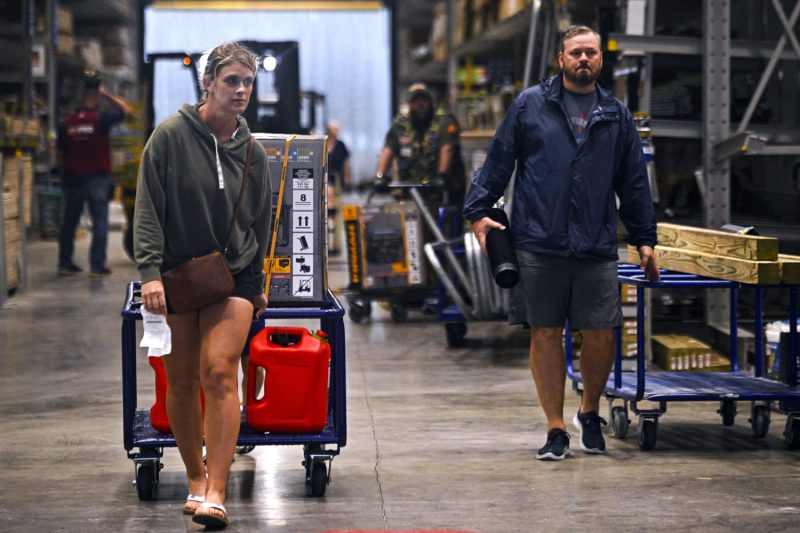The Department of Justice (DOJ) and Federal Trade Commission (FTC) have teamed up to warn consumers about the potential of fraud and price gouging in the wake of Hurricane Milton, which is expected to hit the East Coast in the coming days. These agencies are urging consumers to be extra vigilant and exercise caution when making purchases or hiring services related to storm preparation and recovery.
One of the key risks highlighted by the DOJ and FTC is the prevalence of fraudulent schemes that often emerge in the aftermath of natural disasters. Scammers may pose as legitimate contractors offering repair or cleanup services, only to disappear after taking payment or performing substandard work. To avoid falling victim to such scams, consumers are advised to verify the credentials of any contractors they hire and refrain from making large upfront payments.
Furthermore, the agencies are warning consumers to be wary of price gouging, which occurs when businesses unreasonably raise prices on essential goods and services during a time of crisis. Price gouging can take many forms, from inflating the cost of bottled water and food supplies to charging exorbitant fees for emergency repairs or accommodations. In order to combat price gouging, the DOJ and FTC recommend that consumers report any instances of price hikes that seem unjustified or exploitative.
In addition to these warnings, the DOJ and FTC are providing practical guidance to help consumers protect themselves in the face of potential fraud and price gouging. For example, they advise consumers to keep a record of all transactions related to storm preparation, including receipts and contracts, and to report any suspicious activity to the authorities. By staying informed and proactive, consumers can reduce the risk of falling prey to unscrupulous actors seeking to take advantage of a natural disaster.
In conclusion, the joint efforts of the DOJ and FTC to alert consumers to the risks of fraud and price gouging ahead of Hurricane Milton are a crucial step in safeguarding individuals and communities against exploitation during times of crisis. By heeding the warnings and recommendations issued by these agencies, consumers can protect themselves from potential harm and contribute to a more resilient and secure recovery process in the aftermath of the storm.
